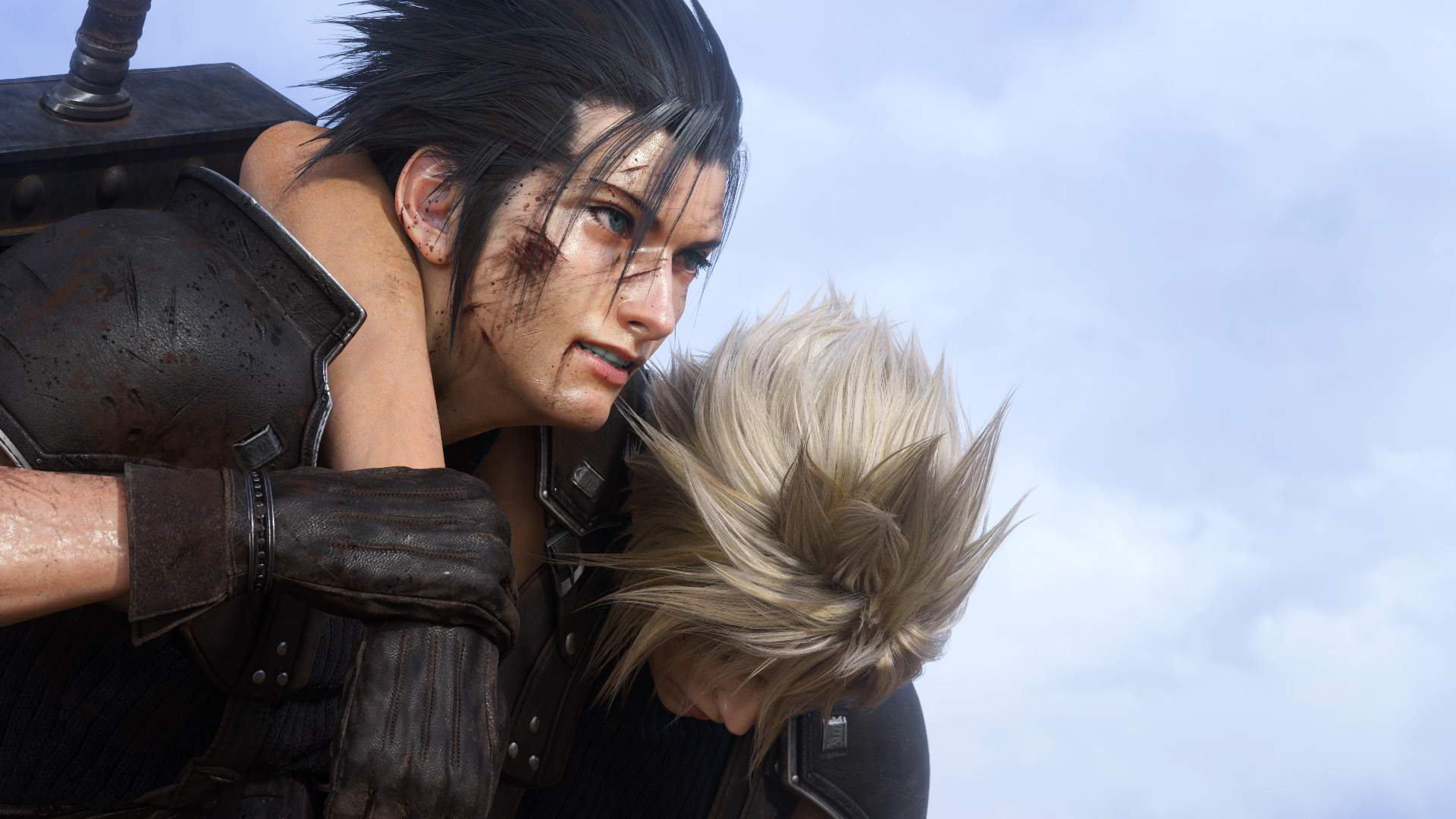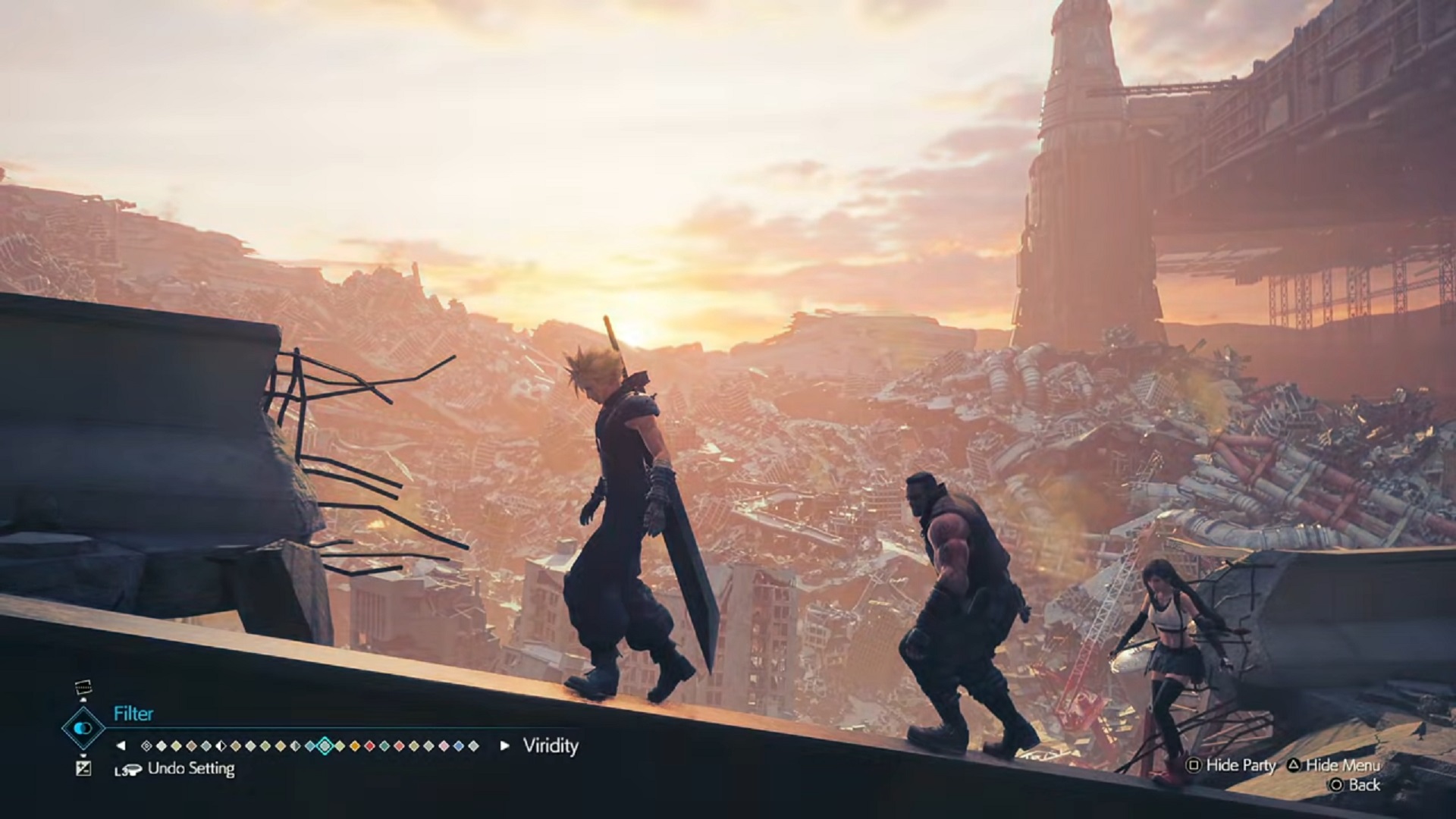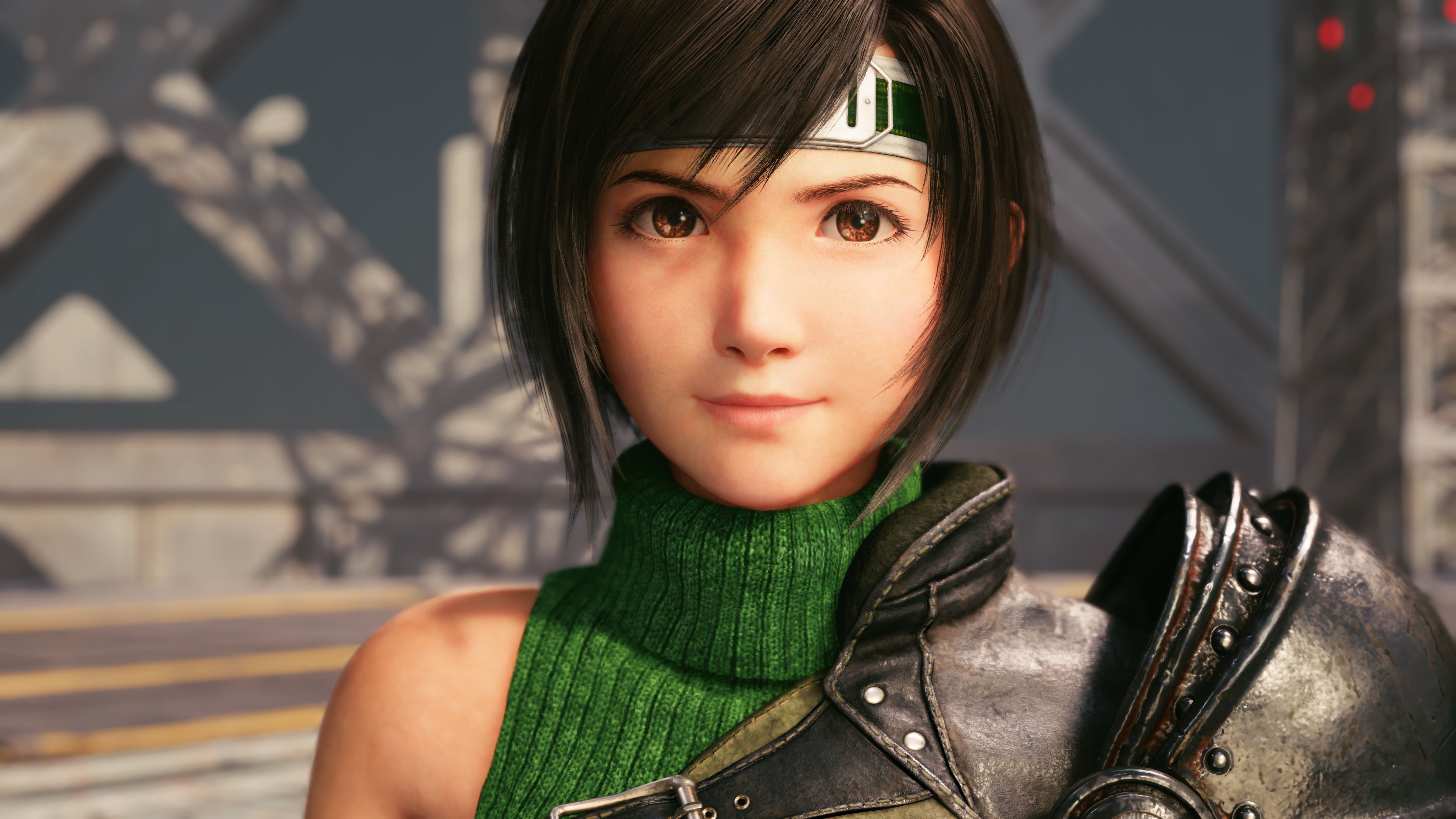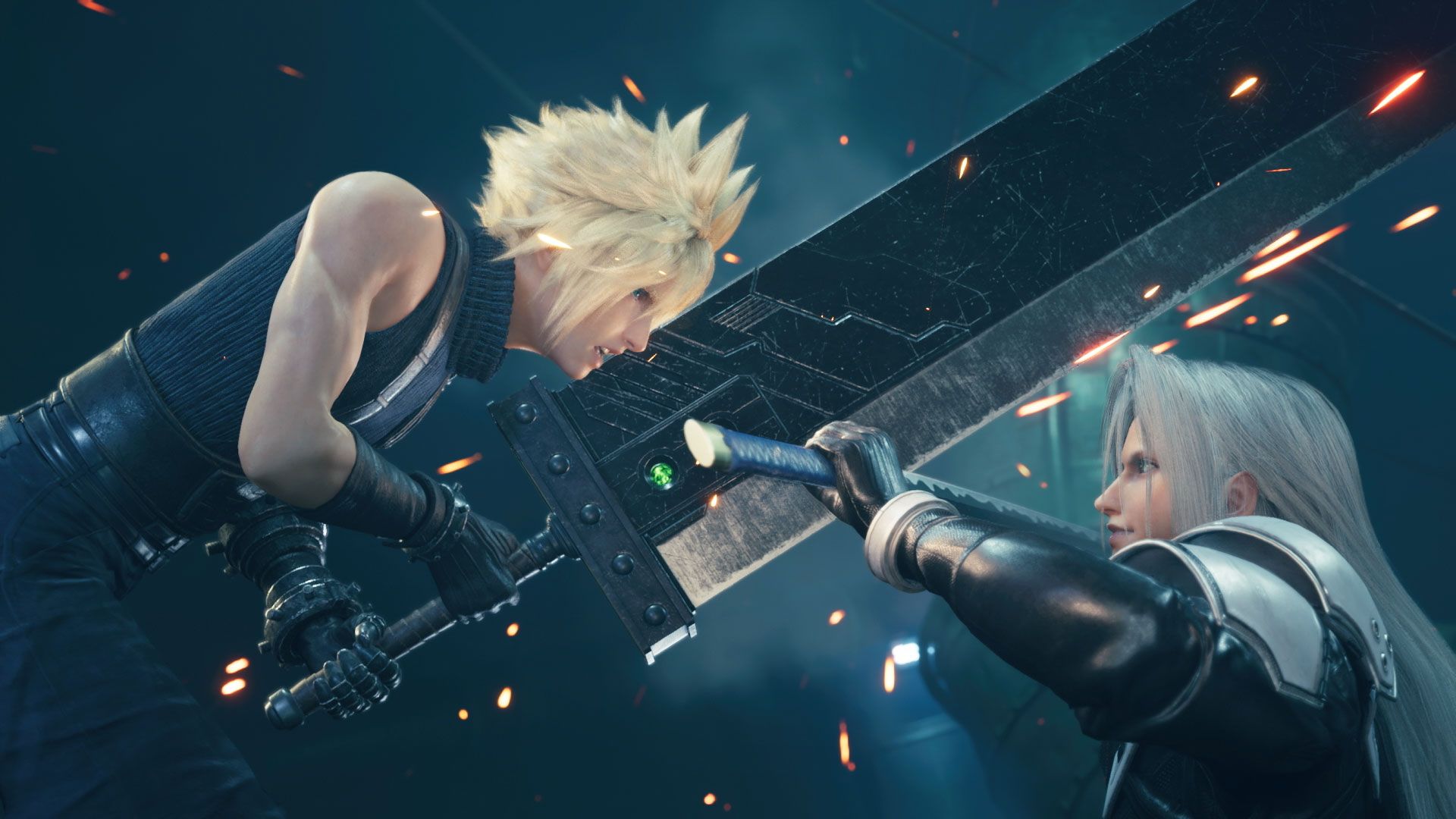
Remakes have been something of a norm for the games industry for years, though our definition of what a remake is, and our expectations of such, is slippery at best. And they don’t get much harder to define than the direction Square Enix is taking with Final Fantasy 7 Remake. In fact, if that game’s ending hadn’t already been clear, then the announcement of its sequel as not simply Part 2, but as Final Fantasy 7 Rebirth, and the confirmation of a third game making this a trilogy, spells out that we’re no longer in the land of remakes as we're most familiar.
Remakes these days can mean anything from a very handsome remaster, that rebuilds the graphics from scratch but retains the exact code and gameplay of the original (I would actually count Bluepoint Games’ work on Shadow of the Colossus and Demon’s Souls as remasters), to complete reimaginings of the art direction, story and gameplay that suits modern sensibilities. And, initially, Final Fantasy 7 Remake leaned towards the latter.
But besides beautiful visuals to make it the envy of the last generation, the change to exciting real-time combat that still kept the spirit of the classic ATB system, or fleshing out characters and storylines in order to justify the first five hours of Midgar being its own feature-length campaign, the developers are now, in essence, rewriting the story, potentially splitting off into another timeline.
Unknown Journey

I doubt this would have been the case had this been the work of a new and young team with unwavering reverence for the original – and crowd-pleasing fan service would have been such an easy win. But with three key returning staff members,Tetsuya Nomura, Yoshinoiri Kitase, and Kazushige Nojima leading the project, they evidently did not want to simply play the hits but instead leave a fresh legacy.
I’m sure they were aware of the tension between matching fan expectations and daring to do something new, which literally manifests itself with the ghostly Whispers, described as arbiters of fate, appearing throughout the game to ensure events play out like they did in the original story. It’s only at the end when Cloud and his party are clear of Midgar and decide to face these arbiters head on that they essentially unshackle the devs from the old script, free to now forge a new and unknown path.

While some fans are in denial of this, and some point to a translated quote from 750-page companion book Final Fantasy 7 Remake Ultimania, wherein Kitase assures us that there are no plans to “drastically” change the story and that “the story of FF7 will continue as FF7 always has”, it’s an assurance hard to take at face value. Besides, if you’re speaking of Final Fantasy 7, it’s important to remember that it doesn’t necessarily just mean the 1997 PS1 game but every other piece of media that ties in with the world and continuity of Final Fantasy 7. The fact we’ll also be getting the remaster of Crisis Core beforehand may even suggest a portion of Rebirth will be spent playing as Zack in the new timeline created by Remake’s conclusion.
Nonetheless, Rebirth will still likely begin with Cloud’s party arriving at the village of Kalm (that much was apparent from the ending of Episode Yuffie), and I suspect other major story beats will be present and correct, such as flashbacks to Cloud and Sephiroth on their way to Nibelheim or the main threat of Meteor hurtling towards the planet all glimpsed in the new teaser. Knowing there’s just two more games to tell the story, we should also expect that the pacing will ramp up compared to Remake’s leisurely time in Midgar.
Weekly digests, tales from the communities you love, and more
The question is how much will the context of each scene differ from the original? If Remake was about recreating the original story with room for expansion and some playful improvisation, Rebirth could essentially be giving us familiar locations but with a completely rewritten script, or make us question what we had experienced before.
Metaworse?

"One thing’s for sure, we’re not in Midgar anymore."
Perhaps the most important moment is half way through the teaser when the unspoken line “What is fact and what is fiction?”, which may allude to the original story of how Cloud’s memories when he was in SOLDIER were altered. However, it’s more telling that this text appears after a flicker of images showing Aerith’s hands clasped in prayer and the White Materia, alluding to her tragic death at the hands of Sephiroth.
Given how Aerith seems to have an understanding of the Whispers and perhaps even glimpsed her own fate, there’s a strong implication that Rebirth will alter this course too, which wouldn’t be a complete surprise seeing how other characters who should have died are seen alive at the end of Remake. Yet there’s also a worry that deviations this drastic risk neutering the original’s emotional core - what is Final Fantasy 7 without the famous scene that made every gamer cry? - while opening up a whole other headache-inducing can of worms.
Perhaps Nomura has got something worked out, but then like he’s done with Kingdom Hearts, it may also end up being too clever (read convoluted) for its own good. As Remake’s conclusion already pivoted away from Shinra as the main threat, putting its environmental message on the backburner for a more generic save-the-world plot, our relationships with these beloved characters are also reduced to mere pawns in a metacommentary that, while trendy and will no doubt generate many explainer articles, leaves me cold. By the time we reach the third currently untitled instalment, it may take us to an entirely unrecognisable game.
Ultimately, I have to commend the ballsiness of the original developers for not taking the path of least resistance, and with the likes of Rebuild of Evangelion or Fire Emblem Warriors: Three Hopes, it is totally possible for alternate retellings of established stories. But I do wonder whether they could have been more open about their intentions, instead of leaving much of its audience feeling like they’ve been hoodwinked into a ride they didn’t ask for, and just how many will get off at the next stop. One thing’s for sure, we’re not in Midgar anymore.
Love your role-players? This list of the best JRPG games is for you.
I'm a freelance games journalist who covers a bit of everything from reviews to features, and also writes gaming news for NME. I'm a regular contributor in print magazines, including Edge, Play, and Retro Gamer. Japanese games are one of my biggest passions and I'll always somehow find time to fit in a 60+ hour JRPG. While I cover games from all platforms, I'm very much a Switch lover, though also at heart a Sega shill. Favourite games include Bloodborne, Persona 5, Resident Evil 4, Ico, and Breath of the Wild.



